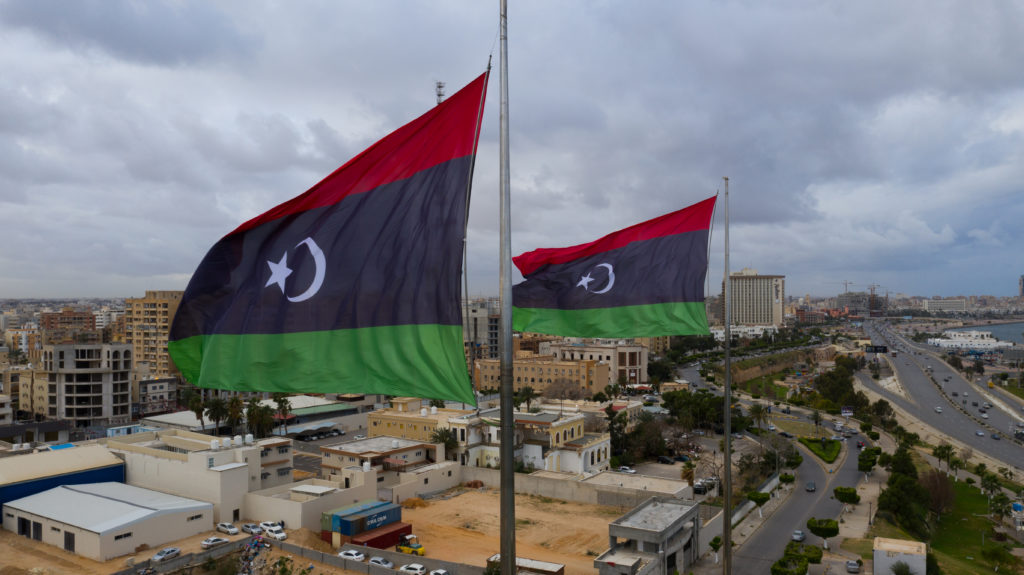REPORT ON LIBYA MISSION – MARCH 2022

Overview
As part of our regular field visits, an ICoCA team spent a week in Tripoli in March 2022. The visit allowed the team to better understand the Libyan operating environment, how the Code is implemented in that specific context and the associated challenges. ICoCA met with private security providers in Libya, including one ICoCA certified member and four affiliates. The team was also able to meet with prospective ICoCA member companies, clients of private security companies—particularly in the oil and gas sector—and representatives of foreign governments, raising awareness about ICoCA and the importance of the Code in ensuring respect for human rights and humanitarian law in private security operations. With the possibility of greater stability in Libya on the horizon, and with international business and embassy staff starting to return, the possibility for higher economic growth is emerging, a growth that will include an expanded private security sector.
Background
Since the end of the Qaddafi regime in 2011, Libya has struggled to rebuild stable institutions and functional security structures. While the conflict between rival groups cooled in the context of UN negotiations beginning in late 2020, the new attempt at compromise has led Libya to once again face a system dominated by rival governance structures and the possibility of new violence between these opposing groups in 2022. Without a competent civilian authority, the security apparatus in Libya has become fractured and unwieldy, mostly composed of rival armed groups with a variety of mandates, structures, and legitimacy. The failure to institutionalize and disarm civilians after the revolution, and the inability to disband or integrate these armed groups has led to a proliferation of weapons, ineffective national structures, and the dominance of local and regional armed groups as security providers.
Against this complex security backdrop, the risk for civilians is high due to the widespread availability of weapons and the divided loyalties of armed groups and armed tribes. These risks are exacerbated by the lack of effective accountability mechanisms and rule of law, as the fractured government struggles to provide stable institutions. In this dynamic and complex context, private security providers are seen as critical actors in supporting the development of a secure and stable operating environment and their services are in increasing demand.
By strengthening their human rights due diligence and procurement processes and requiring ICoCA membership, international clients—including multinational corporations across different sectors, international organisations such as the EU, and the diplomatic community—have driven private security providers to seek to operate to international standards and the International Code of Conduct.
The private security industry landscape in Libya
Although clear licensing processes are yet to be defined, Libya reportedly has around 40 registered private security companies, but perhaps less than 10 are able to effectively bid on large international contracts. The majority of these are ICoCA certified members or affiliates. International private security companies operate with local partners, given prohibitions on international private security companies operating directly in the country.
One challenge in Libya is operating in both the west and east of the country, given the different governance structures in place. Some companies are able to effectively operate country-wide but this is the minority.
The largest sector for private security companies is oil and gas, indeed oil revenues account for 95% of Libya’s income. As countries and organisations seek alternatives to Russian oil and gas due to the conflict in Ukraine, there is optimism in Libya, that the country stands to benefit. With human rights due diligence increasingly required—see the recent proposal for a EU Directive on corporate sustainability due diligence—ICoCA functions as a strong human rights risk-mitigation tool for companies that contract with ICoCA members and affiliates.
Private security providers
ICoCA met with several private security providers in Libya. The unique challenges that the country represents were discussed, along with ways in which ICoCA can provide stronger support to members and affiliates. The increased roll out of ICoCA guidance and training, particularly training in Arabic, was seen as being of high value.
